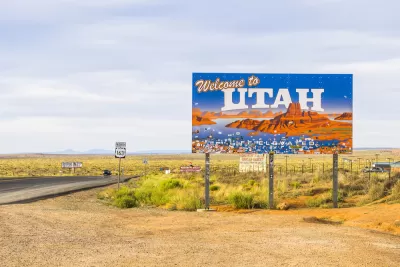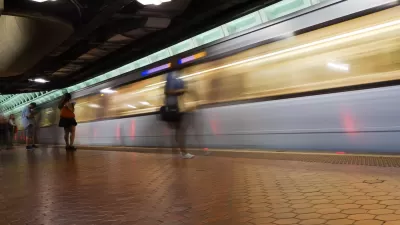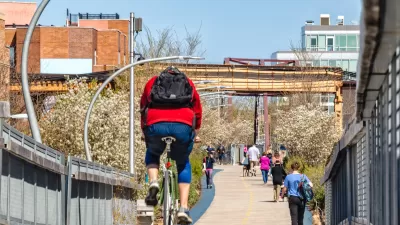A community that focuses on reducing the need for car ownership and providing effective multimodal transportation and diverse land uses will be built from scratch on the site of the decommissioned Utah State Prison.

A brand new neighborhood and "innovation hub" in Draper, Utah will be built with the explicit goal of reducing the need for cars and providing comprehensive, connected bike, pedestrian, and transit infrastructure, reports Kea Wilson. The project, which will be built on state-owned land, is overseen by the Point of the Mountain State Land Authority.
The project, known as the Point, will house roughly 7,400 homes plus schools and businesses. According to the article, "the Utah site may be the first publicly-sponsored project to pursue a car-light model, as well as the first U.S. community explicitly planned around the concept of the '15-minute city' from the ground up." The development will include a central "pedestrian priority zone," mixed-use zoning, public transit, and micromobility options such as bike and scooter share.
While cars won't be entirely banned from the Point, its developers hope that each household will be able to meet its needs with only occasional trips using just one vehicle and plans to connect all parts of the community with diverse mobility options.
State leaders hope the community can serve as a model for sustainable, car-light development that minimizes private vehicle use and improves air quality and livability for its residents.
FULL STORY: Utah Is Building a ’15-Minute City’ From Scratch

Planetizen Federal Action Tracker
A weekly monitor of how Trump’s orders and actions are impacting planners and planning in America.

Maui's Vacation Rental Debate Turns Ugly
Verbal attacks, misinformation campaigns and fistfights plague a high-stakes debate to convert thousands of vacation rentals into long-term housing.

San Francisco Suspends Traffic Calming Amidst Record Deaths
Citing “a challenging fiscal landscape,” the city will cease the program on the heels of 42 traffic deaths, including 24 pedestrians.

Amtrak Rolls Out New Orleans to Alabama “Mardi Gras” Train
The new service will operate morning and evening departures between Mobile and New Orleans.

The Subversive Car-Free Guide to Trump's Great American Road Trip
Car-free ways to access Chicagoland’s best tourist attractions.

San Antonio and Austin are Fusing Into one Massive Megaregion
The region spanning the two central Texas cities is growing fast, posing challenges for local infrastructure and water supplies.
Urban Design for Planners 1: Software Tools
This six-course series explores essential urban design concepts using open source software and equips planners with the tools they need to participate fully in the urban design process.
Planning for Universal Design
Learn the tools for implementing Universal Design in planning regulations.
Heyer Gruel & Associates PA
JM Goldson LLC
Custer County Colorado
City of Camden Redevelopment Agency
City of Astoria
Transportation Research & Education Center (TREC) at Portland State University
Jefferson Parish Government
Camden Redevelopment Agency
City of Claremont





























